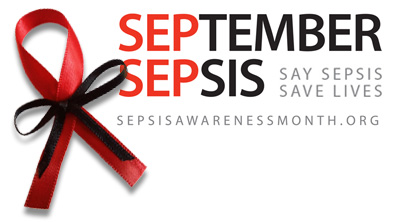 According to the Sepsis Alliance Awareness Survey, about 72 percent of Americans can identify symptoms of a stroke, yet less than 1 percent can correctly identify the most common sepsis symptoms.
According to the Sepsis Alliance Awareness Survey, about 72 percent of Americans can identify symptoms of a stroke, yet less than 1 percent can correctly identify the most common sepsis symptoms.
In recognition of September being Sepsis Awareness month, McLaren Northern Michigan is taking steps to educate patients and the community on this deadly illness.
What is sepsis?
Sepsis is the body’s overwhelming and life-threatening response to infection which can lead to tissue damage, organ failure, and death. Sepsis is a medical emergency that requires early detection and treatment for survival.
Who is at risk?
Anyone with an infection can become septic. The risks are higher in babies, young children, the elderly, people with weakened immune systems, and those who suffer from a severe burn, wound, diabetes, AIDS, cancer, and kidney or liver disease.
What are the symptoms?
Symptoms can be remembered by thinking SEPSIS.
S shivering, fever, or very cold
E extreme pain or general discomfort (“worst ever”)
P pale or discolored skin
S sleepy, difficult to rouse, confused
I “I feel like I might die”
S short of breath
How is sepsis diagnosed?
Physicians diagnose sepsis through a number of symptoms such as fever, increased heart rate, and increased breathing. They will also do lab tests that check for signs of infection. Many symptoms of sepsis are the same as a condition a patient has, which can make sepsis hard to diagnose in the early stages.
How is sepsis treated?
People with sepsis are usually treated in the hospital with antibiotics. In many cases, patients receive oxygen and IV fluids to help with blood oxygen levels and blood pressure. In severe cases, a breathing machine, kidney dialysis, or even surgical removal of infected tissue is necessary.
What can you do to prevent or detect sepsis?
- Get vaccinated against the flu, pneumonia, and any other infection that can lead to sepsis. Talk to your provider for more information.
- Prevent infections that can lead to sepsis by cleaning scrapes and wounds and washing or sanitizing your hands routinely.
- If you have an infection, look for the signs of sepsis.
- If signs of sepsis are present, call your doctor or go to the emergency room immediately. This is a medical emergency.
- It is important to say, “I am concerned about sepsis.”